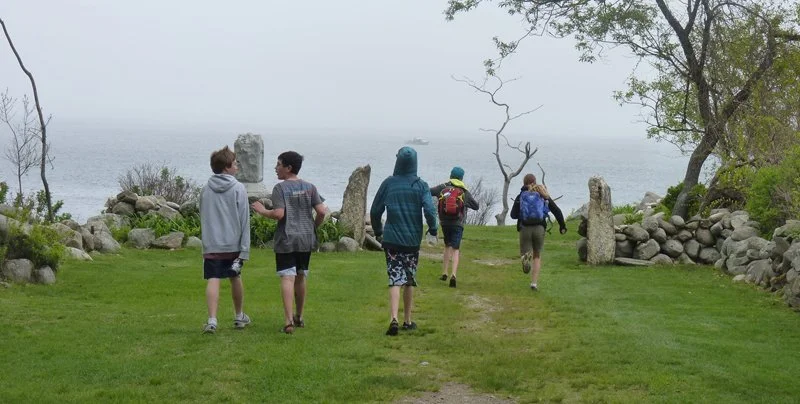Environmental Literacy: Key to a Sustainable Future
PC: New Hampshire Environmental Educators
One of the main campaign goals of the global Earth Day campaign is to enhance climate and environmental literacy to ensure that students across the world develop into informed and engaged environmental stewards. Here in New Hampshire, GOA member New Hampshire Environmental Educators (NHEE) is leading the charge through a network of individuals and organizations working to inspire connection and understanding of the natural world. Check out this Q&A with NHEE to learn more about environmental literacy!
1.) What is environmental literacy, and specifically climate literacy?
According to the NH Environmental Literacy Plan (NHELP), "Environmental literacy requires an understanding of the natural world and the capacity to interpret environmental systems. An environmentally literate citizen can make informed decisions about the environment based on scientific, aesthetic and ethical considerations while bearing in mind the interconnectedness of the social, cultural, economic and political systems."Leigh Ann Reynolds, NHEE Board President says, that "climate literacy is a part of environmental literacy because environmental systems are influenced by climate, so to understand our environment one must understand how climate is impacting the environment."
2.) How is environmental literacy attained?
Environmental literacy is attained through environmental education. In the booklet "Advancing Education Through Environmental Literacy" M.L. Archie defines environmental education as "an interdisciplinary inquiry-based approach to education that integrates hands-on, project-based classroom and community experiences with outdoor, place-based*, in-the-field learning experiences in order to achieve an understanding of the environment as a whole. The environment, along with environmental conditions and issues, can be used as a context through which instruction in reading, writing, mathematics, science, social studies, and the arts are made relevant. The environment can also be used as context for lessons in group dynamics, problem solving, real world, and community issues. This kind of integration creates relevance and context that prevents the confusion students often experience when learning and teaching is approached out of context. It also enhances connections between people, the land, and their communities. Environmental education teaches children and adults how to learn about and investigate the world in which they live and interact, both with each other and with their environment, to attain environmental literacy."
3.) Why is environmental literacy important in New Hampshire?
In today’s world, the need for innovative thinkers and problem solvers is great. Initiatives such as Science, Technology, Engineering and Math (STEM) encourage students to get involved in these subject areas to ready themselves for the next generation of the workforce. Environmental literacy is an intricate part of preparing New Hampshire’s next generations and is recognized as an important aspect of a well-rounded education for a sustainable future. The future of New Hampshire’s precious natural resources lies in an environmentally literate citizenry that is able to make informed decisions. While much is being done to educate our students, there are many challenges ahead. Ensuring environmental literacy is incredibly important to the sustainability of all of New Hampshire’s systems.
4.) What role does NHEE play in promoting environmental literacy?
New Hampshire Environmental Educators is a network of individuals and organizations working to inspire connection to our natural world by supporting high quality environmental education and advancing environmental literacy. We envision a NH where all people value and feel connected to our natural spaces, are environmentally literate, and act as social and environmental stewards in their communities. We host an annual conference, advocate at the state and national level, provide funds through our NHEE'd to Get Outside Grant to nonprofits and schools to encourage taking learning outdoors, and are currently completing a strategic plan towards achieving the dream for us to hire a staff person so that we can do even more to elevate environmental education in the granite state.
5.) Any upcoming NHEE environmental literacy events, initiatives, or news you'd like to share?
The theme of our upcoming May 3rd, spring conference is "Environmental Education in an Ever-Changing World." Participants choose from a variety of workshops with topics ranging from food waste diversion, raptor conservation success, preschool outdoor education, to equity and inclusion. We are thrilled to have Taylor Quimby as our keynote speaker! The title of his talk is “Doom and bloom, joy and dread: Embracing the contradictions in our environmental story.” Taylor Quimby is Supervising Senior Producer of the environmental podcast Outside/In, Producer/Reporter/Host of Patient Zero, and Senior Producer of the serialized true crime podcast Bear Brook. More details can be found at: https://nhee.org/about-us/2023-nhee-spring-conference-annual-meeting-may-3rd

